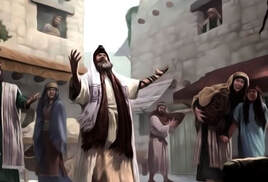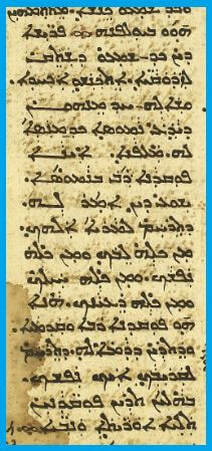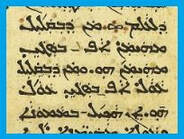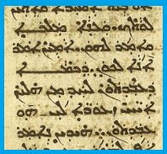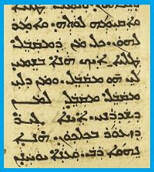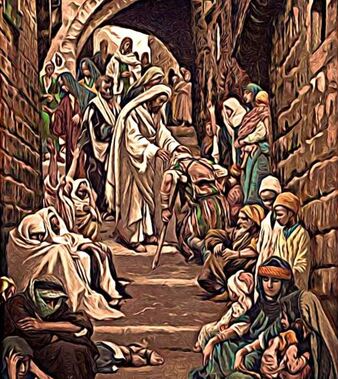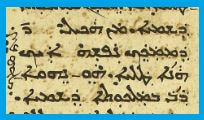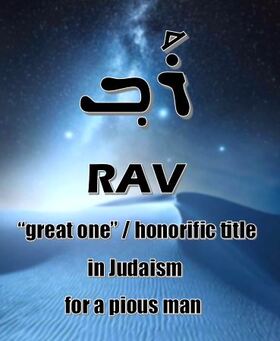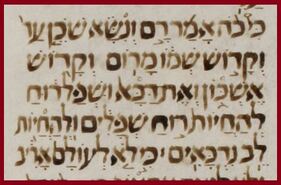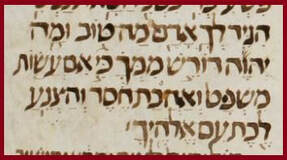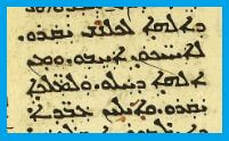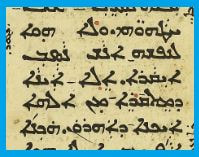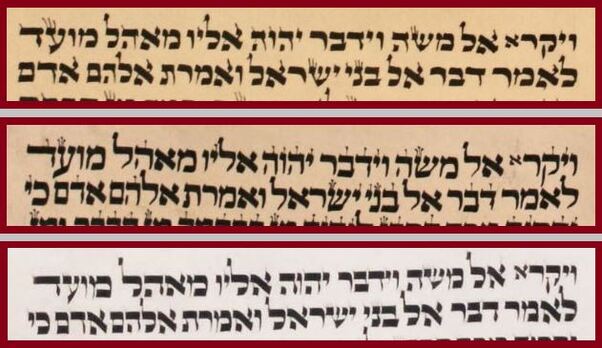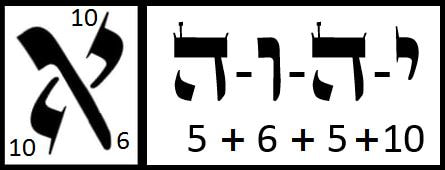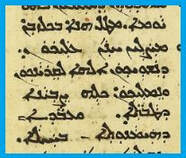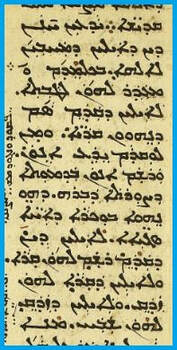HONOR OF THE CALL
by Jeremy Chance Springfield
3/6/2022
The purpose of the Scriptures in a believer’s life is ultimately to draw man closer into relationship with the Holy One. Each facet of the divine instructions preserved for us in the Word is another way for man to reconnect to the Holy One. The performance of the Creator’s will links us continuously and intimately to His Presence.
|
Every time we obey is an incident of spiritual restoration, for it is a denial of following the flesh that is the mark of being a citizen of a dark kingdom to an acceptance of the spiritual yoke of heaven and the illuminated Kingdom that awaits us all. A life of faith is a life of faithfulness—of intentional allegiance to the heavenly realm’s eternal truths.
|
Yeshua spoke to this reality of the call to serve our Creator by distilling the divinely bestowed decrees down to two very important commandments. The account is recorded in Matthew 22:34-40 when He was approached by the Pharisees after the Sadducees.
|
34 Yet, the Prishe, when they heard that he had silenced the Zaduqaye, they congregated together,
35 and one from among them asked him, who knew the Instruction, while testing him: 36 “Teacher, which commandment is the greatest in the Instruction?” 37 Yet, Yeshua said to him, “‘You shall love Marya your Alaha from all your heart, and from all your soul, and from all your strength, and from all your mind.’ 38 This commandment is greatest, and the foremost. 39 And the second is likened to it: ‘You shall love your neighbor as yourself.’ 40 On these two commandments hang the Oraita and the Prophets.” |
The question was presented insincerely, in effort to entrap the Galilean rabbi with the hopes that He would prove to not be so reliable regarding how He interpreted the Word. Instead of walking into their snare, Yeshua answered in a way that upheld the legitimacy and personal nature of the Word by quoting from Deuteronomy 6:5 and Leviticus 19:18, while also aligning with the rabbinic interpretation of the significance of the commandments. The entire message of the Oraita (Aramaic for Torah) and the Prophets depends upon the performance of those two commandments.
The reason is because the text of the Torah itself does not clarify which commandment is the “greatest” or the “least.” This quantifying of the commandments is never addressed in the Hebrew Scriptures, but it is a topic preserved in the texts of rabbinic Judaism as they discuss which ones are more important to follow.
The reason is because the text of the Torah itself does not clarify which commandment is the “greatest” or the “least.” This quantifying of the commandments is never addressed in the Hebrew Scriptures, but it is a topic preserved in the texts of rabbinic Judaism as they discuss which ones are more important to follow.
One ancient account of such discussion is found in the Talmud Bavli, in Makkot 23b and 24a. It is a lengthy passage and will not be quoted here in full, but the brief explanation relevant for this study is that there are six hundred and thirteen (613) separate commandments in the Torah. It then suggests that King David distilled those 613 down to eleven, based on Psalm 15. The prophet Isaiah is said to have then distilled it down to six, based on Isaiah 33:15. The prophet Micah is said to have then distilled it down to three, based on Micah 6:8. Another opinion is then presented that Isaiah actually distilled it down to two, as evidenced from Isaiah 56:1. A view is presented that Amos introduced a singular way to obey, based on Amos 5:4—but this view is rejected and it is finally said instead that the prophet Habakkuk actually came and distilled it down to a single one, based on Habakkuk 2:4.
What this passage and its contents reveal is that Judaism had a solid precedent for boiling down the intent of the Torah to its core values, and the sentiment Yeshua offered to the Pharisees in their attempt to entrap Him shows that He was operating on the same perspective they were using of trying to apply the Torah in its most pure form to the believer. Yeshua was not telling the Pharisees that the other commandments did not matter, but was emphasizing the central nature that loving the Creator and loving one’s neighbor play in the life of the believer: if those are not occurring, none of our other observances of the commandments will be of any real value, because love is the core of the Law.
Yeshua’s ministry particularly drew attention to the call for man to love his fellow human. The ability to set another’s situation above your own is the key to loving the Creator Himself. If we cannot do so with each other, how can we expect to be taken seriously in claiming we love our Maker? They go hand-in-hand.
This was expressed by Yeshua well in Luke 16:10.
Yeshua’s ministry particularly drew attention to the call for man to love his fellow human. The ability to set another’s situation above your own is the key to loving the Creator Himself. If we cannot do so with each other, how can we expect to be taken seriously in claiming we love our Maker? They go hand-in-hand.
This was expressed by Yeshua well in Luke 16:10.
Man must be able to be trustworthy in the little things (loving one another) in order to be believed as trustworthy in the bigger things (loving one’s Creator). It is vital that we keep proper perspective and apply it sincerely, for that is the key to performance of the will of the Holy One.
In Matthew 25, Yeshua gave a parable about how one loves the Creator by loving his neighbors—a sentiment that culminates in 25:40.
In Matthew 25, Yeshua gave a parable about how one loves the Creator by loving his neighbors—a sentiment that culminates in 25:40.
The call to perform His will in the earth boils down to having right relationships: man must love his fellow who is the same as himself if he truly wishes to love the One who created him. This requires humility to truly live it out. Yeshua expresses this notion again in Luke 9:48.
A follower of the Most High must humble himself to the point that he is willing to serve and minister to the least of humanity, knowing that doing so is an act of obedience and worship that reaches beyond the flesh all the way to the Spirit who enlivens us all and has called us to a life of holiness.
Yeshua repeats Himself in Matthew 18:4.
In both passages Yeshua uses the word “great” to describe the type of person who is humble enough to love all and treat even the “least” with honor and value. The term He chose as preserved in the Aramaic text of the Peshitta New Testament reveals a hint to what Yeshua was getting at. He used the word RAV. While it means simply “great,” it also is used in another function in Judaism that is worth noting here.
In countless Jewish texts from antiquity, a person viewed as pious would be given the title “Rav” as an honorific like “sir” or “esteemed,” or so forth. It signified someone of spiritual value, and so would be bestowed as an honor to the person as being someone who lived by the high calling of obeying the Creator through living the commandments as intentionally as possible. The term RAV is the root of the title Rabbi—“my great one.” By Yeshua using the term RAV, He was highlighting that what truly makes a person a “Rav” in the religious lingo sense of the term, is one truly humble enough to love everyone.
This idea of what it really means to be obeying the Creator stems from a truth revealed in Isaiah 57:15.
This idea of what it really means to be obeying the Creator stems from a truth revealed in Isaiah 57:15.
If man wants to properly love his Creator, he must be humble enough to recognize Him in the midst of the other lowly people of the earth, for it is with such that the Holy One dwells!
In the Talmudic passage mentioned above, it was said that Micah 6:8 portrayed the entire Torah in its distilled form of three commands, which fits the context here very well.
In the Talmudic passage mentioned above, it was said that Micah 6:8 portrayed the entire Torah in its distilled form of three commands, which fits the context here very well.
Man's purpose in life is laid out very clearly in this declaration. The Creator expects three basic things from the believer:
Yeshua’s disciple, Simon Peter, proclaimed in 1st Peter 2:17 the vital factor of loving each other in order to properly love our Maker.
When we show honor to our fellow man, we are showing reverence for the One who called us and has given us the honor of living for Him. This is made clear in the book of Hebrews 5:4, where the context concerns the priestly office of ministers, such as Aaron, who have been called to honorably serve the Creator by attending to the spiritual needs of their neighbors.
The Aramaic behind this holds a significance to our topic reaching beyond the importance of the translation. This is found in the words of “honor” and the phrase “he who is called.” The Aramaic terms are as follows.
Both terms are from the root KRA. There is thus a subtle play on these two words in the text that highlight the connection between “honor” and being “called.” However, since this is in the context of the priesthood, and the service performed to Israel through that method of ministering, the word-play is even more relevant to us.
The connection is seen and appreciated by returning to the very first verse of the book of Leviticus 1:1. Included are three examples from different Torah scrolls of that verse.
The connection is seen and appreciated by returning to the very first verse of the book of Leviticus 1:1. Included are three examples from different Torah scrolls of that verse.
Notice in that passage that the term that begins the third book of the Torah is VAYIKRA, meaning “and He called.” Notice also that the last letter of the word VAYIKRA, which is the letter Alef, is written much smaller than the letters before and after it. This is not a mistake. It is traditional that the scribe writes this letter noticeably smaller whenever the first word of Leviticus 1:1 is written. The following image shows the diminutive size of the letter in the word.
The significance of this unusually small letter Alef at the end of VAYIKRA is in how the word is read with that odd representation present. The small letter Alef is said to signify that it should not be read as VAYIKRA, but as if the Alef were missing, yielding the result of VIKAR “and honor” (an example is provided below), as if taken from the term YEKAR “honor.”
The concept is that the calling the believer experiences is one of honor, because it is due to the merit of the One who calls—the Creator. This is evidenced within the letter Alef itself. It means “1,” which is a reference to the Holy One, therefore the “call” to obey is due to Him alone.
This is seen also within the letter Alef itself, which is composed of a letter Yud on the right, another letter Yud on the left, and a letter Vav in the middle—three letters which, when their gematria value is considered, have the values of Yud (10) and Vav (6), for a sum of 26, which is the sum of the four-letter Name of the Holy One—represented in these studies by the English letters YHWH. He is the Source and the goal of our calling. No higher honor exists.
This is seen also within the letter Alef itself, which is composed of a letter Yud on the right, another letter Yud on the left, and a letter Vav in the middle—three letters which, when their gematria value is considered, have the values of Yud (10) and Vav (6), for a sum of 26, which is the sum of the four-letter Name of the Holy One—represented in these studies by the English letters YHWH. He is the Source and the goal of our calling. No higher honor exists.
Additionally, the call is one of honoring Him in all our actions, as the term YEKAR—spelled without the Alef—means “honor.” By responding correctly, we can serve Him through worshipful obedience by loving others and loving Him, as Yeshua emphasized.
Another way that this small Alef has been traditionally interpreted is that it signifies the humility of Moses—yes, he was called specially for the purpose of leading the people, but the small Alef can also be understood as a sign of his humility, where the term if read as VAYIKAR without the Alef means “and He happened upon [Moses].” This would signify that this “calling” was more subdued in nature—he was chosen not based on his own merits, essentially.
As believers, we too are called not based on our own merits, which inevitably come up short, but upon the merits of the Messiah. Paul spoke to this fact in 2nd Thessalonians 1:11.
Another way that this small Alef has been traditionally interpreted is that it signifies the humility of Moses—yes, he was called specially for the purpose of leading the people, but the small Alef can also be understood as a sign of his humility, where the term if read as VAYIKAR without the Alef means “and He happened upon [Moses].” This would signify that this “calling” was more subdued in nature—he was chosen not based on his own merits, essentially.
As believers, we too are called not based on our own merits, which inevitably come up short, but upon the merits of the Messiah. Paul spoke to this fact in 2nd Thessalonians 1:11.
This calling we have received is all based on what Yeshua has done. Although the vast majority of believers are not Levitical priests, we do still have a spiritual purpose that He has ordained for us, and by standing in humility with Yeshua’s merit upholding us, loving each other and loving our Maker, we can indeed do all that He has planned for us in this life of ministry.
Paul also makes this clear in Romans 8:28-30.
Paul also makes this clear in Romans 8:28-30.
|
28 Yet, we know that those who love Alaha, in every thing He helps them for the good—those whom He previously set in place that they should be called.
29 And from the beginning He knew them and imprinted them in the likeness of the image of His Son, that he should be the firstborn of many brothers. 30 Yet, those He previously imprinted, them He called. And those whom He called, them He made right. And those whom He made right, them He glorified. |
If we will love Him and each other in our calling, we will bring Him honor and legitimize the supreme sacrifices Yeshua made to bring us into a life of obedience to the Most High. The importance of the commandments in a believer’s life cannot be downplayed. They serve a role that keeps us in proper perspective of the purpose for which we have been redeemed. To love others with the same intensity of love we possess for our Maker.
Each act of our obedience is a worship experience that brings Him honor. Every time we align with His heart through performance of His Word, we show that the calling matters, and the manner in which we live in this calling also makes all the difference. To love each other with humility is to return the graciousness with which He has so abundantly loved us.
All study contents Copyright Jeremy Chance Springfield, except for graphics and images, which are Copyright their respective creators.
